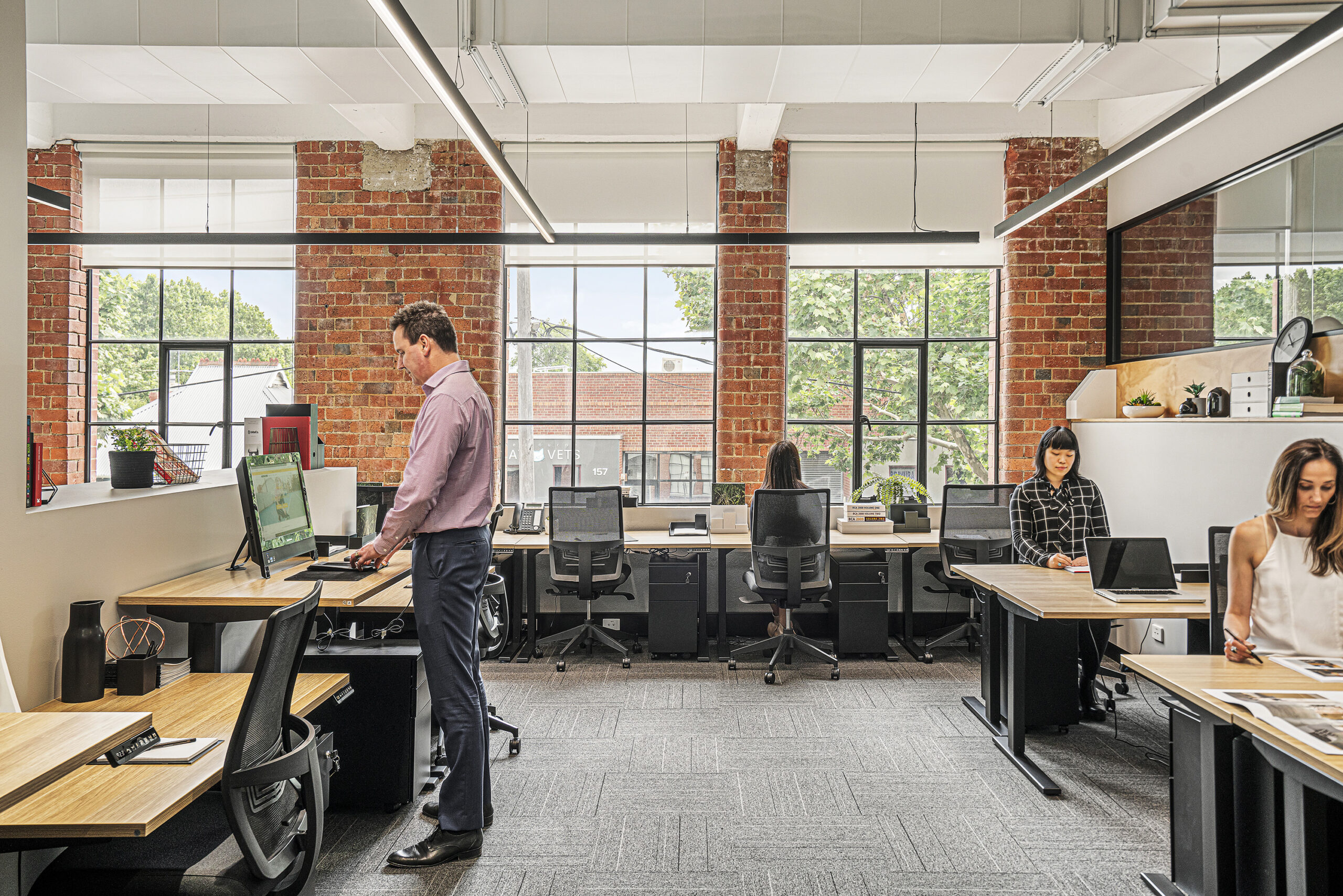
The day you start a business might be the most exciting decision of your life. However, that decision comes with challenges, especially if this is your first time. There are many things to consider and checklists to tick off before you are ready to enter the market. Setting up a new business can be daunting if you are not prepared. But you don’t have to worry alone, according to the Statista Research Department, over 406 thousand new businesses entered the Australian market in the financial year 2023. To help you start strong and thrive in your new business, here are United Co.‘s tips on how to start your business in Australia.
1. Create Your Business Plan

The initial step in starting a business in Australia involves creating a comprehensive business plan. This essential document provides an overview of your business, including its operations, market opportunity, key personnel, financial projections, and other critical aspects.
Your business plan is not only crucial for setting up your business but also serves as a valuable tool when seeking financing. Investors look for evidence that you have thoroughly researched your business idea, and a well-crafted business plan demonstrates this effort. This is particularly important if you are a first-time entrepreneur without a proven track record.
Your business plan should be clear, concise, and include the following key components:
- An executive summary outlining your business goals
- A description of your business, including the goods or services it will offer
- A market analysis demonstrating the demand for your products or services
- An organizational summary listing key personnel or employees
- A marketing strategy detailing your advertising and promotional plans
2. Secure Funding for Your Business
Securing funding is crucial for most small and new business owners to launch their ventures. Depending on your business’s nature, you’ll require office space, equipment, furnishings, marketing, and daily operations funds. Since profitability often takes months to achieve, you may need to explore these funding sources:
- Personal savings: Using your savings can be a viable option if you have sufficient funds set aside.
- Crowdfunding: Utilizing dedicated crowdfunding platforms, you can encourage people to donate to your business venture in exchange for incentives or equity.
- Private investors: Angel investors in Australia are keen on supporting new businesses financially.
- Grants and funding programs: The Australian government offers grants and programs for eligible business owners.
- Traditional bank loans: Many small business owners opt for loans from Australian banks to finance their ventures.
- Venture capital: A form of private equity financing provided by firms or funds to startup, early-stage, and emerging companies.
3. Establish a Business Structure
Once you already secured your funding, the next thing to do is decide the structure of your business, choosing the right one that fits your needs. This decision is crucial, especially when you start a new business in Australia, where you have several business structures to choose from:
- Sole trader: This structure is easy to set up and operate. Sole traders can hire employees, but the owner is solely responsible for the business, including any debts or losses.
- Company: A company is a separate legal entity that can incur debt, sue, and be sued. It is more complex than a sole trader structure, with various tax and legal obligations.
- Partnership: In a partnership, two or more people run the business together, but not in the form of a company. They distribute the business’ income and losses among themselves.
- Trust: In a trust structure, the trustee (who can be a person or a company) carries out the business for the trust members or beneficiaries. The trustee is responsible for the trust’s income and losses.
Each structure has different tax and legal obligations, so it’s advisable to consult a business advisor, lawyer, or accountant for guidance on the right structure for your goals.
Read More About 10 Tips on How to Start Networking and Improve Your Business
4. Register Your Business
To make your business official, you’ll need to register it. This is crucial to the step on how to start a business in Australia. First, registering ensures that your business is taxed at the correct rate, which is essential for maintaining compliance with tax laws and avoiding penalties. Second, registration helps protect your brand and ideas by providing legal recognition and ownership of your business name and logo. This protection can be crucial in the event of a dispute or if someone tries to use your brand without permission.
Additionally, registering your business can give you access to certain benefits and opportunities, such as government contracts or funding programs, which may require official registration. Overall, registering your business is a key step in establishing your presence in the market and protecting your interests as a business owner.
5. Protect Your Business

As a new business owner, you must invest a significant amount of time and money in your business, and it’s essential to protect that investment through careful planning. Most businesses require some form of insurance to safeguard their operations. Examples include workers’ compensation insurance, public liability insurance, professional indemnity insurance, as well as insurance for expensive business assets, stock, and products.
If you’re unsure about the insurance coverage you need, it’s advisable to consult with an insurer, licensed insurance broker, or a business advisor. They can help ensure you have adequate protection tailored to your specific business needs.
6. Learn About the Tax
Taking control of your taxes now can simplify things in the future. Understanding tax requirements ensures your business is taxed accurately, avoiding penalties. Get an overview of record-keeping, tax registration, and payment options.
Furthermore, maintain clear and organized financial records. A robust record-keeping system can help you manage your records, track progress, and secure finance if needed. Lastly, learn how to lodge and pay taxes based on your business structure.
Read More About Tax Tips for Small Businesses to Maximize the Benefits
7. Organize Any Licences or Permits
In Australia, businesses typically require various licenses, permits, and documentation to operate legally. The specific requirements vary depending on the industry. These licenses and permits are influenced by four primary factors:
- The nature of your business and the products or services you intend to offer.
- Applicable local, state, or territory regulations in the area where your business will be located.
- Your chosen business structure (e.g., sole trader, company, partnership, or trust).
- Operational aspects of your business, such as operating hours.
Information about the specific licenses or permits needed for different types of businesses in various locations across Australia can be found on the official government website for the Australian Business Licence and Information Service.
8. Set Up Your Business Operation

Setting up your business operations, from hiring employees to managing suppliers and finding the perfect office location, is an exhilarating experience. Properly establishing your business operations not only saves you trouble in the long term but also allows you to dedicate more time to running your business effectively.
For a new business in Australia, choosing the right location for your first office is crucial. However, there’s more to it than just finding a suitable space. You need to consider zoning laws, licensing fees, insurance costs, and various other financial aspects before finalizing your office space. Consulting with your local council can provide you with a better understanding of the requirements. Additionally, you must also consider the image your office location conveys to your clients and customers.
United Co.’s Enterprise Solution offers an excellent option for setting up your first office in Australia. We provide fully furnished offices and tailored space solutions to meet your specific needs. This alternative to traditional office rental in Melbourne eliminates the need for large upfront capital expenses, rigid office leases, or time-consuming design and fit-out processes. Furthermore, the serviced office offers flexible lease terms, allowing you to rent office space for as little as a few months or as long as a few years, making it easy to scale up or down as your business requirements change.
Read More About Getting to Know the Top 5 Benefits of Private Offices
9. Market Your Business
Finally, marketing plays a crucial role in running a successful business. It’s essential to present your product or service to the right audience at the right moment to persuade them to make a purchase.
Digital marketing is particularly vital for any new business since customers primarily discover and interact with brands online. Therefore, it’s important to invest in your website’s design, content, and social media presence to improve your search engine rankings and increase your visibility to potential customers.
In conclusion, starting a business can be an exhilarating journey, but it comes with its challenges, especially for first-time entrepreneurs. There are many factors to consider and tasks to complete before entering the market. The tips provided by United Co. on how to start your business in Australia cover essential aspects of thriving in the market.
By following these guidelines and seeking advice from professionals when needed, you can set a strong foundation for your new business and increase your chances of success. Remember, starting a business is a journey, and with the right preparation and mindset, you can achieve your entrepreneurial goals.
United Co. is a shared workspace offering various services tailored to businesses of all sizes. If you are a new business owner looking for a space to establish your new venture, reach out to our team to discuss our flexible workspace options.




